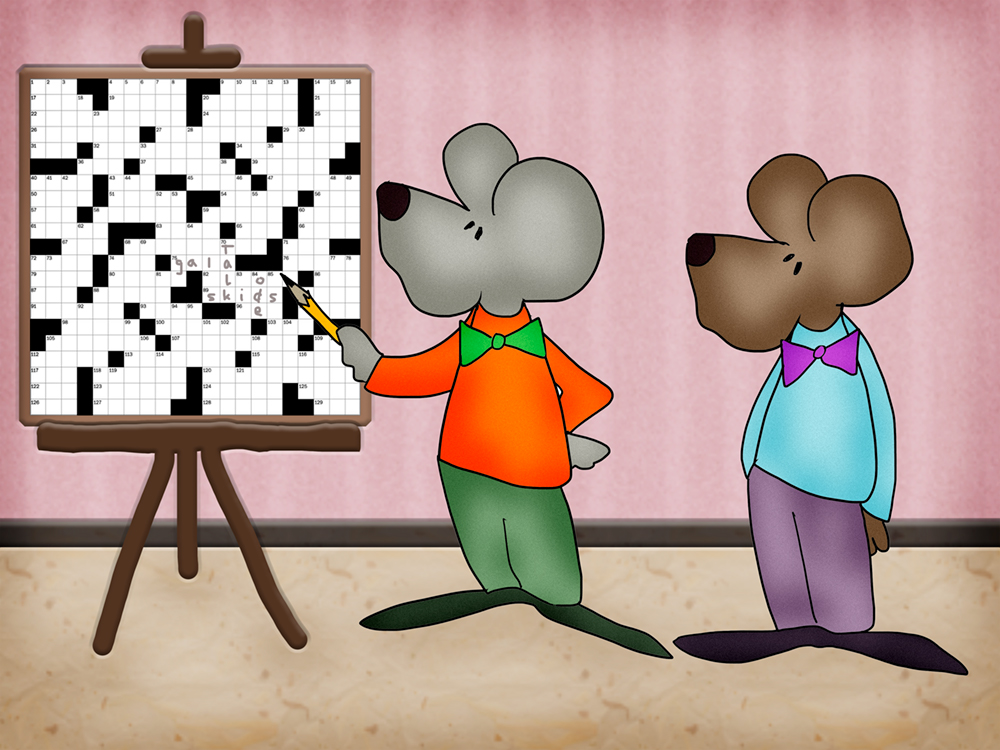I like to work crossword puzzles. I’ve been doing them since I was a kid. Not continually. Clearly, I go about other things in my day. But every now and again, I like to work one.
But first. I think they get a bad rap. It is the whole terminology. People “work” crosswords. That particular phraseology makes them sound like a real drag. Like work. I suppose, sometimes they can be taxing on the brain. But most of the times, it is the closest I will come to being Sherlock Holmes. Or even Encyclopedia Brown. That sleuthing.
There are clues. And possible solutions. The glory comes from figuring it out.
And it seems that I am not alone in my admiration for the sport. Well. Sport might be a stretch. It isn’t as if I put on a helmet and shoulder pads when I work one. Yet. Crossword puzzles are said to be the most popular word game in the world. Albeit, they have not been around for all that long.
The first known published crossword puzzle was created by a journalist named Arthur Wynne from Liverpool. He sounds like a crossword guy if you ask me. Arthur Wynne from Liverpool. Not only did he publish it, he is usually credited as the inventor. So yes. The actual date was December 21, 1913.
The very first puzzles were diamond shape, with no black squares. It took about 10 years for them to evolve into the familiar look they have today.
These days, there are some heavy hitters when it comes to creating them. Truly, there is a top 20 list of these people. The darlings of the crossword. world. One of the top guys is Will Shortz. He is the famed editor of The New York Times crossword puzzle. I’m not saying he is a nerd, BUT, he’s the only person in the world with a degree in Enigmatology — which is the study of puzzles.
Then there is David Steinberg. This guy. He’s known in the black ink circles as a crossword prodigy. He had a crossword puzzle published in The New York Times when he was 14 years old. They all have a laundry list of publishing accomplishments.
Solving a crossword is one thing. Creating a puzzle is an entirely different matter. Most likely, I will stick with the solving part. That is the fun part. Seeing a clue: Word before Kat, or Glue. And then finding the answer: Krazy.
Crazy. Life sure can be a little crazy sometimes. Especially when we are faced with real life puzzles. Those snarky times when we need to figure something out. Find a resolution. Come up with an answer.
I heard a story yesterday about a very difficult domestic situation. The more details that came out, the stickier the circumstances seemed. There certainly weren’t any black and white squares. In fact, everything overlapped with a lot of gray areas.
Most of the times, that is how our “real life” puzzles evolve. No easy solutions. No clear cut definitions. But. We try. We do our best to wiggle out an answer. Or at least, a possibility.
And that is the one thing that we need to remember. In crosswords, there is one definition that works. And only one.
In our lives, there are endless possibilities. While there may not seem like any probable solutions, they are usually in our midst. Or right around the corner. We are at our best when can see that there might be many and abundant options. I’m told that in every moment there are is an infinite number of possibilities. And that is our puzzle to solve. The figuring out of life.
==========
“The world’s a puzzle; no need to make sense out of it.” – Socrates”
============
“Isn’t life a collection of weird quizzes with no answers to half the questions?”
― Pawan Mishra, Coinman
============
“I would rather have questions that can’t be answered than answers that can’t be questioned.”
― Richard Feynman
===========
